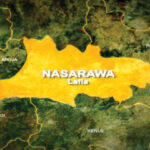I woke up to the good news that the 279 girls kidnapped last week from Government Girls Junior Secondary School (GGJSS), Jengebe, Zamfara State, had been released. I had my piece for this week all ready and had to discard it, but I have never been more grateful for a curve ball being thrown at me. When the news of their abduction broke, parallels were immediately drawn with that of the Chibok girls which happened seven years ago. Everyone wondered if in 2028, the Zamfara girls would still be in captivity. Of the 276 girls kidnapped by Boko Haram from Government Secondary School Chibok in 2014, 103 were released, 57 fled and four later escaped while 112 are still missing.
Insecurity in Nigeria did not start with the Chibok girls’ abduction. Insecurity across the nation has been there for years and has gotten increasingly worse as bandits, including Boko Haram, operate with increasing impunity. Kidnapping for ransom has become so commonplace that when people go out and do not return, in whatever part of Nigeria, their families’ first thoughts are that they have been involved in an accident or have been kidnapped.
- Reps ask INEC to review federal constituencies
Food dealers: Northerners, Southerners Suffered But We Achieved Our Aim
The wealthy hire armed escorts. Those who cannot afford remain under the radar of kidnappers. And when they do, only the most egregious make it to the news. People would tell you as casually as if they were talking about power outage, of a neighbour or a relative or someone they know who was kidnapped and was later released after ransom was paid. We understand that those are the lucky ones.
My former hostel mate and friend at FGGC Abuja, Sherifat, recently lost her husband to kidnappers. He was abducted on his farm in Oyo, and 10 days after his family paid the demanded ransom; his remains were discovered in a bush.
In the North, the very poor who should not be abducted for ransom because they have little to give, Boko Haram and other armed groups abduct their children from schools which are poorly guarded and often located far away from towns. Mass abductions from schools, therefore, offer very little risk to these groups, although in the last two cases, the governors of the affected states have claimed that no ransom was paid.
Maybe it is not the security the schools cannot promise that is the problem, but that the bandit groups, whether Boko Haram or copycat groups, are well equipped. At the time of the Zamfara kidnapping, the gunmen apparently also attacked a military camp and a checkpoint near the school, making it impossible for soldiers to respond to the raid. And Boko Haram has long ceased to be the rag tag army of insurgents exclusive to the North East. Since 2009, its attacks have affected not just Nigeria, but also Chad, Cameroon and Niger. In March, 2015, its leader, Shekau, pledged the group’s allegiance to the Islamic State. Less than a week later, Abu Bakr al Baghdadi accepted the pledge. The Multinational Joint Task Force (MNJTF) with soldiers from Benin, Cameroon, Chad, Niger and Nigeria, which was set up in 1994 was revitalised in 2015 to quell the rising insurgency, but it is obvious that the war against the jihadists is far from over.
On December 12, 2020, a village in Niger was attacked and 60 per cent of the village was destroyed with many people killed. In October, 2020, schools in Northern Cameroon were closed down out of fear of Boko Haram attacks. On January 8, 2021, a village in Northern Cameroon was attacked with more than 20 people killed. In Nigeria, within the space of two days, two schools were attacked by bandits that may very well be Boko Haram.
I watched an interview with one of the parents of the abducted girls who said that should her child return, she would not be allowed to return to school. In a country and in a region, particularly where school enrollment is historically low, and especially so for girls, this lack of security keeping children away from school is a huge setback. This parent is not alone. Would you send your children to school if you were not reasonably sure of their safety? Of what use would the education be if they were abducted and never seen again and you do not know whether they are alive or dead, sold into slavery, forced into marriage or recruited to commit acts of terrorism?
I am happy the two recent school abductions ended relatively well (although the Kagara abduction resulted in one student’s death).
However, like with everyone else I know, the question is not if, but when another abduction will occur.
Sadly!




